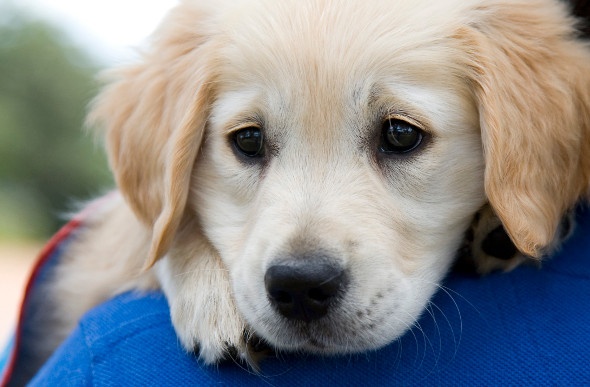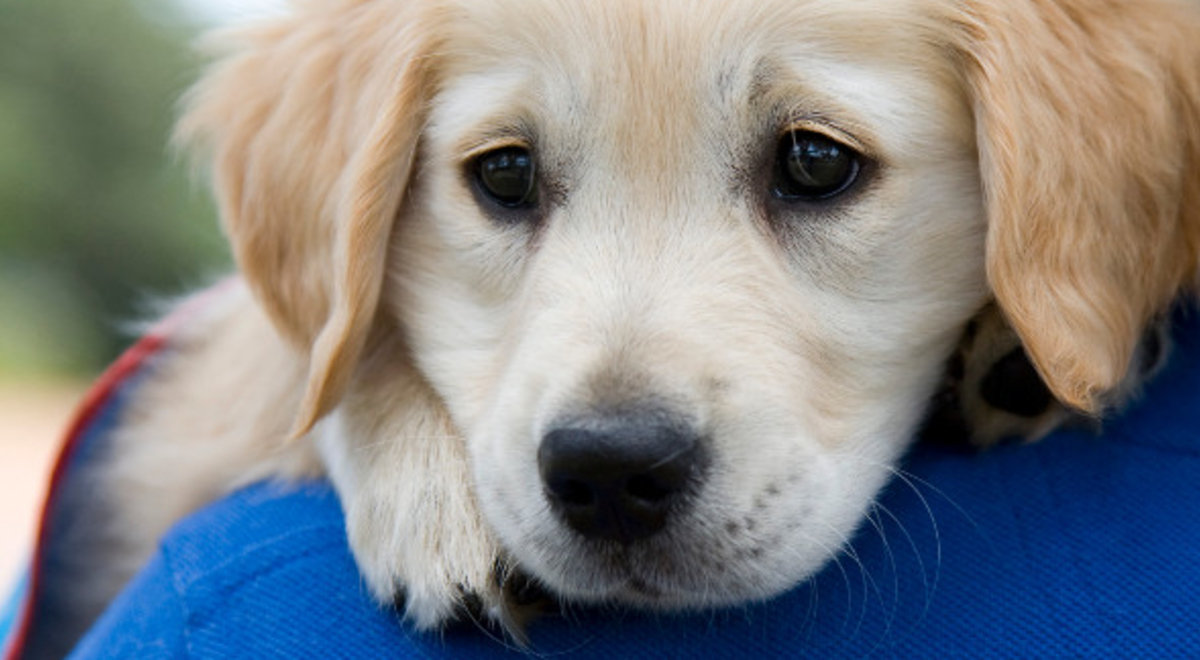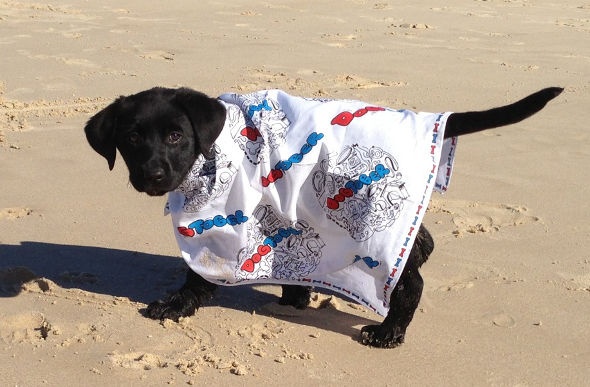Taking your pets on holiday isn't just for high-flying celebrities with a Louis Vuitton puppy carrier draped on their arm. For many of us, pets are part of the family.
Your excitement may be overflowing as you load up the car or your taxi pulls into the driveway, but heartbreak sets in as soon as you spot that despondent furry face watching you disappear, wondering if you're ever coming back. It's never been easier to take leave with your four-legged loved ones.
Virgin Australia recently launched a special loyalty program for our most loyal companions, meaning members of the Velocity Frequent Flyer initiative can now earn points when their cats and dogs take to the skies. Who said old dogs can't learn new tricks?
There are some important things to consider before you start making those happy holiday memories, however, so we spoke to the RSPCA and Assistance Dogs Australia to get the inside scoop on pet travel.
Your pet deserves a holiday too! Image courtesy of Assistance Dogs Australia
Planning your pet's great escape
Nobody knows the country's furry folk quite like RSPCA Australia, who have kindly given us guidance on combined holidays for pets and their doting owners.
After you've made the decision to include Fido or Fluffy on your break, book in a visit to the vet. The first step is to check your pet is healthy enough to travel, has plenty of medication if necessary and is up to date with their vaccinations, worming and flea and tick treatments. It will get them reaccustomed to their travel cages too.
The RSPCA recommends having the contact details of a vet at your destination on hand just in case. Once you have the green light from the doc, set about ensuring your pet is comfortable, safe and used to being in their travel container or restraints. Don't forget to check the state laws concerning animals in vehicles if you're hitting the open road.
Guaranteeing your pet's comfort is especially important if you're sending them via air, which is an unfamiliar environment for most animals and may cause them to become agitated or stressed.
"Associating travel containers and restraints with positive things, such as food rewards, will help them feel more comfortable and at ease," advise the RSPCA. Whether you're travelling by road or air, ensuring your pet has plenty of water and sufficient breaks for relief and a bit of reprieve is a must.
Gracie donning her Dogtober cape. Image courtesy of Assistance Dogs Australia
Enjoying the ride en route
For some, travelling without their canine companion is simply not an option. National charity group Assistance Dogs Australia (ADA) trains Labradors and Golden Retrievers to assist people with physical disabilities, giving them independence to perform everyday tasks and a lifelong best friend in the process.
This "Dogtober", ADA's super puppies are once again in the spotlight for their continued hard work in lending helping paw to those who need it most.
Assistance Dogs Australia's Senior Trainer, Helen Stathy, has some handy hints to ensure your pets enjoy the ride from the moment your holiday kicks off.
If your pet is looking a little green around the gills, Helen recommends a natural ginger-based tablet or treat to calm their tummies during the journey. For itchy paws or bites and stings, try an Epsom Salts solution, Aloe Vera, apple cider vinegar or witch hazel. As for nervous travellers, a dab of lavender usually works a treat.
When it comes time to booking animal-friendly accommodation, Helen advises to call ahead and check any restrictions the hotel may have, such as dog size specifications and whether there is sufficient exercise space nearby to shake off the stagnant road trip. As a precaution, Helen also suggests taking current vaccination cards or records to show the hotel staff.
Choosing to travel with your pampered pet is a commitment and you may have to adjust your itinerary accordingly. If you can't resist that national park, unspoiled beach or another "no go" pet zone, make some arrangements beforehand and above all else never leave your furry friend in the car.
Even on a cool day, the stress from being confined and separated from their favourite person (you!) can lead to dire situations we have seen all too often.
Pet Pack Checklist:
- Collar and ID tag with your mobile number on it
- Food and treats. Don't forget a can opener!
- Bowls for food and water – carry a bottle of fresh water in case you can't find a tap
- Bedding or a travel crate to sleep in
- Collars, harnesses and leads
- Your pet's favourite toys or comfort items
- Absorbent mats
- Grooming equipment including a towel (especially important for beach holidays)
- A 'pooper scooper' and plastic bags to clean up after your pet
- Any required medications
- A pet first aid kit (available from St John Ambulance)
- List of emergency numbers such as poison control and the nearest vet
- A photo of your pet in case you become separated
Read up on some FAQs about domestic and international pet travel in our plan & prepare guide.









